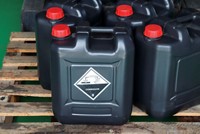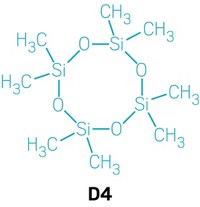Advertisement
Grab your lab coat. Let's get started
Welcome!
Welcome!
Create an account below to get 6 C&EN articles per month, receive newsletters and more - all free.
It seems this is your first time logging in online. Please enter the following information to continue.
As an ACS member you automatically get access to this site. All we need is few more details to create your reading experience.
Not you? Sign in with a different account.
Not you? Sign in with a different account.
ERROR 1
ERROR 1
ERROR 2
ERROR 2
ERROR 2
ERROR 2
ERROR 2
Password and Confirm password must match.
If you have an ACS member number, please enter it here so we can link this account to your membership. (optional)
ERROR 2
ACS values your privacy. By submitting your information, you are gaining access to C&EN and subscribing to our weekly newsletter. We use the information you provide to make your reading experience better, and we will never sell your data to third party members.
Persistent Pollutants
US EPA cuts off path for quick marketing of new PFAS
Activists petition agency to block three other routes too
by Cheryl Hogue
April 28, 2021
| A version of this story appeared in
Volume 99, Issue 16

The US Environmental Protection Agency will routinely deny certain requests from chemical producers to get new per- and polyfluoroalkyl substances (PFAS) to market rapidly, the EPA announced April 27.
Valued for their resistance to harsh conditions, PFAS are extremely persistent. Some are linked to cancer and other health problems.
With the goal of keeping unsafe new PFAS off the market, the EPA has cut off these substances from a regulatory shortcut allowing companies to rapidly commercialize new chemicals produced in low volumes. Under the Toxic Substances Control Act (TSCA), companies can ask the EPA to bypass a 90-day premanufacture review of a new molecule if they make 10,000 kg/year or less of the compound. Normally, when the EPA gets such exemption requests, it has 30 days to review them.
PFAS introduced into US commerce through this speedier route include toxic chloroperfluoropolyether carboxylates that taint soil near a Solvay plant in New Jersey, says the advocacy organization Environmental Working Group.
But robustly scrutinizing low-volume exemptions for PFAS in 30 days is challenging because assessing the hazards of these substances is scientifically complex, the EPA says in its announcement.
Henceforth, although the EPA will still consider shortcut requests, PFAS are “unlikely to be eligible for this kind of exemption,” the agency says.
“This announcement only suggests that more time is needed than the current 30-day time frame,” the US chemical industry group American Chemistry Council (ACC) says in a statement provided to C&EN. The move does not suggest PFAS commercialized through this route were found to be unsafe, the ACC says.
The EPA also says it will urge PFAS manufacturers to voluntarily withdraw low-volume exemption requests the EPA previously granted. Withdrawal means affected PFAS would undergo the 90-day premanufacture reviews to remain on the US market. Such reviews require chemical makers to provide more data, such as results of toxicity tests, to the EPA than for an exemption request.
Meanwhile, environmental and health groups petitioned the EPA to halt three other TSCA exemptions that can allow rapid commercialization of new PFAS. Represented by the law firm Earthjustice, 15 organizations asked the EPA to scrap exemptions for PFAS that are byproducts, polymers, or chemicals with low release and exposure.
Collectively, manufacturers parlayed the four types of exemption requests to introduce 490 PFAS into US commerce since 2000, the Environmental Working Group says.




Join the conversation
Contact the reporter
Submit a Letter to the Editor for publication
Engage with us on Twitter